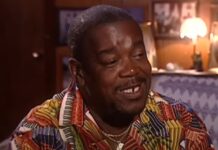
*It is quite commonplace to be barraged by blaring headlines about how another embattled professional basketball player has succumbed to financial ruin.
According to Sports Illustrated, the average career length of a basketball player is 4.5 years with 60 percent of players becoming destitute five years after retirement. There are, however, a few exceptional athletes that have created successful businesses and vocations after the ending of their athletic careers.
However, the majority of players squander their multi-million dollar earnings by maintaining extravagant lifestyles, supporting family and friends, trusting accountants and financial advisors without any accountability, and making ill-advised investment choices.
Take for instance Vin Baker, a former player for Los Angeles Clipper, who grossed $100 million during his professional basketball career, Baker now works as a Starbucks Manager. Baker credits the reason he lost his vast fortune was due to alcoholism and a lack of shrewd financial management. Based on 2010 Yahoo report, former Chicago Bulls forward Scotty Pippen blew through a staggering $120 million. One example of his bad investments was Pippen’s acquiring a $4.3 million on Gulfstream II corporate jet that had to remain grounded due to the engine needing $1 million in repairs. Latrell Sprewell ended his career with the Minnesota Timberwolves and made $100 million during his career. According to reports by Celebrity Network, Sprewell now resides in a humble rental and living off of $50,000. As previously stated, there are many contributors to an athlete’s financial downfall, but, the main reason is most professional players lacking a solid education in financial literacy.

Community Ambassador for the 2014-2015 NBA Championship team the Golden State Warriors, Adonal Foyle has maintained and grown his wealth that he amassed during his 13-year career in NBA. Foyle seeks to help his fellow colleagues to improve their financial literacy with his book appositely titled Winning the Money Game: Lessons Learned from the Financial Fouls of Pro Athletes published by Harper Collins.

What motivated you to write “Winning the Money Game?”
At the time, it was important for me to know what was going on in the sporting world. When you look at the number of players going through financial duress and hardship, I wanted to find a way to help. I wanted to start a conversation about the importance of financial literacy and understand what it means to pay attention to your finances. While I was still playing in the NBA, I wrote a master’s thesis in my sports psychology class about the retirement experiences as an NBA player.
I interviewed about ten different retired NBA players, and the one common thing they brought up was that they wish they had paid more attention to their finances. So a serious problem among professional athletes was identified, and I thought it was important to keep the conversation going and understand what some of the reasons were for pro athletes losing their wealth. At the same time, I want to help the next generation of athletes and give them the tools that these former players wish they had.
What are some psychological factors that contribute to athletes mismanaging their finances?
There’s a fear of asking questions, as well as a fear of failure. There’s also a guilt factor, where players feel they should show their love by providing for those around them. There are a lot of factors that come into play that could potentially lead to athletes losing their wealth. Players always have the best intentions when it comes to taking care of their loved ones, but it’s that guilt that often leads to mismanaging their funds. They become enablers in a lot of ways, by helping the next generation the wrong way.
How can athletes who may not have received the necessary education about understanding their finances, improve in this area? How can they become more involved?
Athletes can improve by learning from what has happened to other athletes in the past. They should learn from the mistakes that others have made. There are a lot of players out there who have lost everything. Today’s players shouldn’t be afraid to speak with one of these players. Most of them are happy to share their stories, so others don’t have to make the same mistakes. Players can also learn from those who have been successful. There are plenty of retired athletes who have been able to carve a second career for themselves like Jonathan Bender, Reggie Miller, Magic Johnson, Michael Jordan, Shaquille O’Neal and Pat Garrity. There are guys out there who have been able to make the transition successfully, and we should solicit their input so we can find mentors who can help us transform our journeys.
What programs does the NBA have in place to help incoming athletes?
The NBA holds a symposium for incoming players before the start of the season. The league also holds a series of summer programs where the league stays in touch with first-year players. This program continues throughout the course of that first season, where the league stays in touch with these players. So there are programs in place where the NBA tries to educate players when it comes to financial literacy. The question we should be asking, though, is how effective are these programs in light of a new generation of players coming in? Are these players utilizing all of these resources properly to help themselves? And we all have to be honest when trying to answer these questions and evaluate where we are with these programs.
Will you parlay the financial guidance you offer in your book into a business to help other players?
I will always be available to other players if they have any questions. I do run a consulting practice, Foyle Performance Coaching, where its mission is to help the next generation of athletes from making the mistakes the previous generation has made. It’s all about creating an atmosphere of accountability and giving the players the necessary tools to be successful.
Do you see yourself turning your book into a series?
I’m just now realizing how difficult it was to write a book. It took me a very long time to complete this project. I would be grateful to have another opportunity to write. But for right now, I would like to focus on this particular book. As of right now, I’ve said everything I wanted to say and have been very fortunate to have this as my platform. Hopefully, athletes and working professionals will have a chance to read it. The future will speak for itself. As of right now, I would just like to enjoy this journey of discovery and propel this movement.
If you can give a new player three key pieces of financial advice what would they be?
First and foremost, players should sign their checks. They should also audit everyone around them. They should do this on a regular basis, every day, every week, every six weeks or every six months. Players should audit everyone who has access to their finances. Finally, players should pay attention to the people around them. As a public figure, people are going who want to be around you. Players should be able to surround themselves with people who will bring something to their lives – not subtract something. Get people who are assets, rather than liabilities.
What steps did you take to become financially savvy?
I listened to a lot of people who are smarter than me. I asked a lot of questions. I am very aware of the mistakes that I’ve made. I am aware of how I spend my money. I make decisions every day, but I think about those decisions every time I pull out my checkbook. Every time I use my credit card; I make sure I have enough money to cover it. It has to become a way of life. And for me, I like to believe that even though I don’t always stay on the right path, I certainly know where the path is. And I strive always to stay on that path.
Who makes up your financial power team?
Without naming any names, I have a financial team made up of four people. There’s an accountant, a lawyer, a financial consultant and an independent person whose only job is to ask all of the questions I want to ask.
What are the main reasons successful retired players choose not to mentor young players?
Part of the reason is that we haven’t asked other players. Also, every player goes through a transition when they retire. These players need time to transition to find that new purpose and new path before they can pay it forward to the younger players. I know I mentioned asking older players for knowledge. But we should also understand that some players may not be ready to share that knowledge just yet. But eventually, they will be in a good place. So younger players should be persistent and continue to reach out to the older generation. There are also barriers that come between younger and older players, and one simply might not know how to initiate contact. We should be able to create a better mechanism, where there is easier facilitation between people who have passed through the league, players who are currently in the league. Making those kinds of connections shouldn’t be difficult.
For more information on Adonal Foyle, visit www.adonalfoyle.com. His book can be purchased on Amazon.com and Barnes & Noble.
We Publish News 24/7. Don’t Miss A Story. Click HERE to SUBSCRIBE to Our Newsletter Now!





